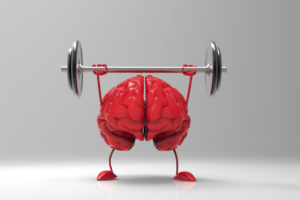Schizophrenia: Causes, Symptoms and More

Introduction
Schizophrenia is a psychiatric disorder where people suffering from it often face delusions or hallucinations. Schizophrenia can occur in both males and females, where men are likely to show symptoms from the early ’20s, and women tend to show signs between the ’20s to ’30s.
If this condition is not treated on time and left unattended can cause some severe problems, and you might have to go to a mental hospital. People with such conditions do not believe that they are ill and hence don’t take medicines, worsening their condition. Let us look at the causes, symptoms, and treatments below:
Symptoms
Early Symptoms
Early symptoms start showing in the teenage years and early ’20s. However, these symptoms usually get overlooked because of typical adolescent behavior.
Symptoms include:
- changing social groups or friends
- isolating yourself from friends and family
- sleep problems
- changes in focus and concentration
- difficulty with school work
- poor academic performance
- irritability and agitation
Positive Symptoms
Positive symptoms are those behaviors that are generally not considered healthy in individuals. They include:
- Delusions: It is when you believe something even though facts are negating it.
- Hallucinations: Hallucinations include seeing things, smelling things, or hearing voices that others around you don’t experience. It appears real but is created in your mind.
- Movement Disorder: Strange postures or agitated body movements.
- Thought Disorder: Unusual ways of thinking or processing information.
Negative Symptoms
Negative symptoms interrupt a person’s typical behavior, emotions, and abilities. These include:
- trouble controlling impulse
- lack of emotions and expressions
- social isolation
- disorganized thinking or speech
- odd responses to situations
- lack of interest in life
- difficulty in completing everyday tasks
- lack of experiencing pleasure
- difficulty following plans
Cognitive Symptoms
Cognitive symptoms are hard to detect and are subtle. It may affect memory and one’s thinking patterns.
These symptoms include:
- problem learning information and using that information
- lack of insight or unawareness of their symptoms
- trouble paying attention or disorganized thinking
- lack of understanding data and using it
Causes
The leading cause of schizophrenic disorders is unknown, but doctors believe several factors might contribute to this disorder.
Including:
- Biological
- Environmental
- Genetic
Chemical abnormalities in the brain are believed to be one of the causes of schizophrenia. Some studied have recently suggested that people with schizophrenia often show abnormalities in brain structure.
Some researches also suggest that certain brain chemicals that affect behavior and emotions may cause schizophrenia.
Some other risk factors include:
- having inflammatory or autoimmune diseases
- mind-altering drug usage
- exposure to toxins before birth
- high-stress levels
Types
Once schizophrenia was divided into five parts. However, recently all the subtypes were eliminated, and today, schizophrenia is now one diagnosis.
Some include:
- Residual: If someone was diagnosed early in their life but didn’t show symptoms.
- Paranoid: Doctors say paranoia is a ‘positive’ subtype of schizophrenia.
- Hebephrenic: This type included people with no hallucination or delusions but did have disorganized speech or behaviors.
- Catatonic: People who developed signs of being mute or who developed a stupor-like effect.
- Undifferentiated: People who showed this subtype showed more than on predominant symptom.
Diagnosis
Although there is no single test that will diagnose schizophrenia, a complete medical exam is needed to make a proper diagnosis.
Expect these questions at your doctor’s appointment:
- your medical history
- your family history
- your mental health
The doctor might also conduct the following:
- blood work
- physical exam
- imaging tests
If you have had two of these symptoms mentioned below for more than one month, your doctor might be able to diagnose your condition.
- delusions
- hallucinations
- disorganized speech
Treatment
There is no cure or treatment for schizophrenia. However, you can use specific medicines to reduce this condition’s severity, and you will need lifelong treatment for it. It is essential to get yourself checked by a practicing doctor for your mental health and avoid going to a mental hospital.
Some medications have proven to reduce the effect of schizophrenia, but the symptoms will not disappear completely.
You can also take vitamin treatment, glycine supplement, fish supplement, and diet management to control the symptoms of schizophrenia.
Conclusion
There is no way to prevent schizophrenia, but studying those at risk of getting this disease can avoid significant problems later on. If your doctor gives you treatment, it will be based on specific drugs or a combination of medications to help you and reduce the symptoms of schizophrenia.
It is best to talk to your doctor or health practitioner if you wish to get yourself treated and take help from your friends and family. If someone around you shows any signs of schizophrenia, make sure to contact your doctor.



































No comments